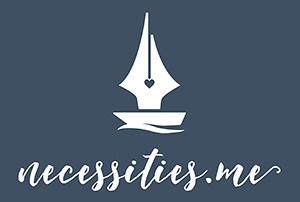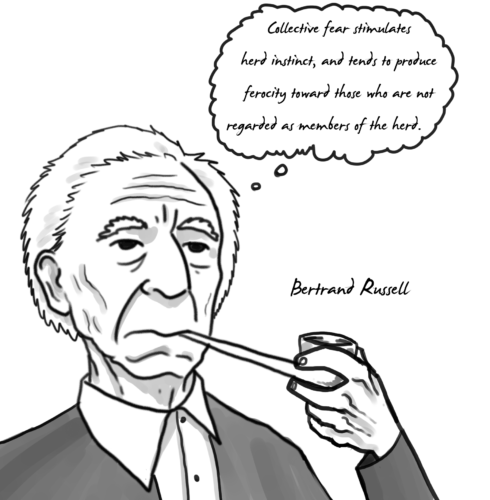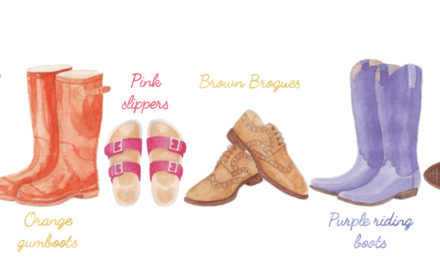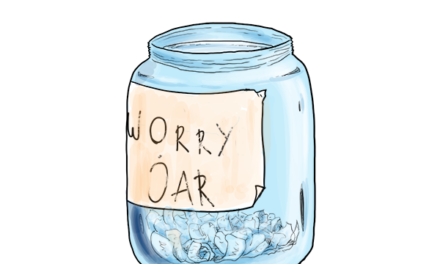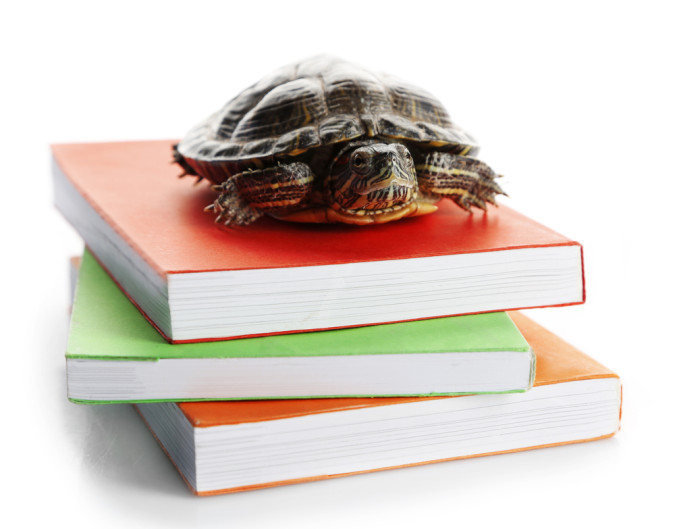Refining Your Personal Philosophy
Ever wonder how people form and develop their steadfast and seemingly unchanging thoughts, ideas and opinions? Whether it’s who to vote for, which car is best, or which kind of chocolate tastes better, every single opinion and idea has an origin — we weren’t simply born believing that one political party is better than another, that a sedan is better than a truck, or that white chocolate is better than dark. These personal philosophies form in our minds over time through many different inputs.
Rohn writes that our personal philosophy is formed from what we know and the process of how we came to know it. Throughout our lives, we gain knowledge from many sources: personal experience, friends, parents, schools, culture, media, and so on. We deduce principles and patterns from this knowledge and organise these into belief systems. Your personal philosophy determines what you think is true, how you understand life and what factors guide your thinking and decision-making.
Our personal philosophies are automated and hidden from awareness. Carefully observe yourself and others when faced with a new idea or information, and you’ll see that we are constantly scanning and filtering life experiences through the lens of our existing philosophy. Information that matches our existing beliefs reinforces our philosophy; but information or experiences that seem to disagree with or even contradict our beliefs are usually discarded without adequate thought.
Our personal philosophy determines our value system — what we truly value as human beings. For example, as our day unfolds, we choose to do with our time what we think is valuable. One person might decide to go for a walk in the morning, while the other chooses to sleep in. One person might extend compassion to another human being, and another might withdraw it. The end result of these individual choices will be different. We will continue to make decisions based on what we consider valuable, and the accumulation of these choices, day in and day out, determines the course of our lives and that of our families, communities and nations.
Mark Twain once said, “If a cat sits on a hot stove, that cat won’t sit on a hot stove again. That cat won’t sit on a cold stove either. That cat just don’t like stoves.” This is similar to how our experiences shape our personal life philosophies — and if left unchecked and unquestioned, might be hampering our growth, keeping us trapped in fear. In this case, the cat has made a decision about hot stoves, leading to the conclusion, “all stoves are dangerous — stay away!” The cat has drawn an erroneous conclusion about ALL stoves. That’s a recipe for stagnation.
The individual values we share collectively become the cornerstone of our families, communities, leadership, geopolitical environment, freedom and liberty. Reviewing, refining and revising our personal philosophies is an integral part of our growth as individuals and societies. Here is a personal example: I have not always been a mindful consumer. It’s been a learning curve spanning across four years where I have examined my thinking and decision-making patterns in light of new information.
Years of accumulated misinformation leads to faulty decision making. Our decisions may not be inherently wrong, but the information on which these decisions are based can be incorrect. How can we change? We change by challenging our personal philosophies through a three-step process of review, refinement and revision. We do this in the light of new information. The world is your oyster when it comes to information (at times more of an information overload). We’ve hand picked some suggestions from Jim Rohn that can be used with My Wellness Journal, but will work just as well in any other journal or planner.
Learning from personal experiences
Rohn says, “We all have a university of experience within us. The books lining the shelves of our minds were written and placed there by all that we have experienced since birth.” My Wellness Journal has a dedicated ‘Reflections’ section for the simple reason that evaluating and discerning personal experiences is the key to unlocking our potential and personal genius. Each day, My Wellness Journal lets you evaluate your day, including work commitments, emotions, and lifestyle choices. Examining our past and present experiences is key to learning how to make better decisions in the future. Whether we have seen success or failure, nothing is wasted as long as we have learned from it.
Reading books
Rohn writes, “We are rapidly becoming a nation of passive intellects.” He continues that the neglect of reading and writing skills leads on to a deterioration of thinking habits, values and decision-making. He reiterates the importance of reading good books, for there is condensed wisdom to be found in books, and he recommends that we all ask ourselves the following thought-provoking questions: “In the last ninety days, with this treasure of information that could change our lives, our fortunes, our relationships, our health, our children and our careers for the better, how many books have you read? Why do we neglect to read books that can change our lives? Why do we complain and remain the same? Why do so many of us curse the effect but nourish the cause?” You can maintain a reading list in My Wellness Journal and set reading as a daily self-care goal.
Keeping a personal journal
I once heard the phrase, “Experience is not the best teacher, evaluated experience is.” Maintaining a consistent journal helps you evaluate your life experiences, challenging personal notions such as “there is not enough time during the day,” or “I can never get things done.” It inculcates a habit of greater personal awareness that we all need in an environment of rapid change. Writing helps you gain clarity and think more objectively about your actions. Necessities HQ received samples of My Wellness Journal in September, and I’ve been consistently road testing it since then. It has become a gathering place of my observations and discoveries — both personal and professional. And, I’ve found that keeping a well-documented past has helped me make better decisions in the present. When I flip back, key learnings become evident — I could not retrieve them at will from my memory archives, but written words ensured these key learnings did not get lost. It really is true that “the shortest pencil is better than the longest memory.”
More ways to review, refine and revise
Other strategies to develop a more balanced personal life philosophy include finding a mentor, learning from other people’s successes and failures, and becoming a good observer and listener. There are many messages trying to grab our attention, and Rohn encourages us to learn to discern valuable messages from shallow and ignorant ones. When Bertrand Russell was campaigning for nuclear disarmament, a yogi once said to him, “What’s the point in us getting rid of nuclear weapons when we still have a mindset that created nuclear weapons?”
Our personal philosophies and mindsets are very important to shaping our lives and the future of this planet. We can actively pursue a more open-minded, well-rounded and beneficial personal philosophy by making small journal entries, reading one book at a time, and actively pursuing knowledge that helps us create thoughts and opinions that bring out the best in us. As Rohn writes, “The ability to establish more competent leadership in our governments, our schools, our churches, our businesses and our communities lies in the emerging value of the individual.”
Words To Grow By
Bertrand Russell
“Collective fear stimulates herd instinct, and tends to produce ferocity toward those who are not regarded as members of the herd.”
